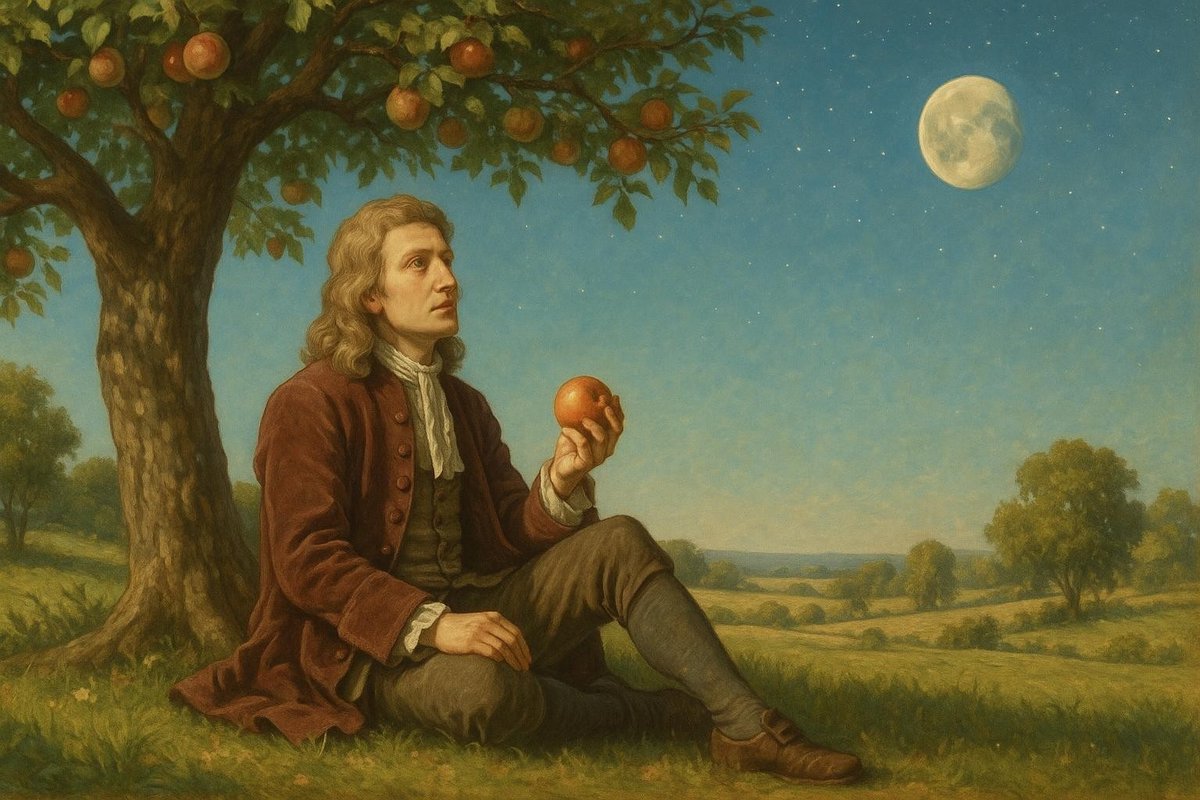
Unpacking the Question: Why Did That Apple Fall?
Isn’t it fascinating to think that the fall of an apple could lead to one of the greatest scientific discoveries ever? This seemingly simple question, ‘Why did the apple fall?’ is not as straightforward as it looks. When Isaac Newton asked this question, he wasn’t just pondering the apple’s descent to the ground. He was delving into the mysteries of the universe.
- Newton observed that objects fall towards the Earth, but he wondered if the same force reaching out from Earth also affected the moon.
- He asked himself, could this force extend through space to govern the motion of celestial bodies?
- His curiosity wasn’t just about the apple, but about the universal principles governing motion.
Before Newton, people like Aristotle and others believed that celestial bodies moved in their own realms, governed by different laws than those of the Earth. Yet, Newton dared to unify heaven and earth under the same laws of motion. His insights wouldn’t just answer ‘why’ but also ‘how’ the universe operates in harmony. It’s a beautiful thing to realize how one question can lead to unraveling the cosmos.
Surprising Facts: Newton’s Leap into the Cosmos
Many of us have heard the tale of Newton and the apple, but did you know that Newton was actually more interested in the moon? Yes, that bright, silvery orb in the night sky sparked an idea that would forever change our understanding of space.
- Intriguingly, Newton’s observations suggested that the gravitational pull wasn’t just limited to Earth.
- He pondered, “Could the same force pulling the apple downward also be holding the moon in orbit?”
- Newton formulated that the same gravitational force could explain the elliptical orbits of planets. This was groundbreaking!
Newton’s leap of imagination was not just a scientific breakthrough; it was a philosophical one. He dared to suggest that the heavens were not governed by divine or mystical forces but by the same natural laws that govern the Earth. This unified perspective was revolutionary, shaking the foundations of science and philosophy in the 17th century.
What Science Says: A Unified Explanation of Motion
Newton’s insights didn’t just remain hypothetical musings; they laid the groundwork for modern physics. But what exactly did science say about this invisible force?
- Newton’s Law of Universal Gravitation proposed that every particle of matter in the universe attracts every other particle with a force proportional to the product of their masses and inversely proportional to the square of the distance between their centers.
- He introduced the equation, F = G * (m1 * m2) / r^2, where G is the gravitational constant.
- This equation elegantly explains why planets orbit the sun and why we don’t float off into space.
It’s fascinating to note how Newton used mathematics to express his theory, allowing us to predict the movement of celestial bodies accurately. This was not just a scientific tool but also a philosophical shift, suggesting the universe operated like a giant mechanical clock, precise and predictable.
What It Means for Us: From Newton to Now
Newton’s theory of gravity was not just a triumph of human thought but a stepping stone for future discoveries. It impacts our daily lives more than we might think.
- This theory laid the groundwork for Einstein’s theory of relativity, which expanded our understanding of gravity as a curvature in spacetime.
- Newton’s gravitational laws also paved the way for space exploration, allowing us to send probes to distant planets.
- Consider how GPS technology relies on our understanding of gravity to function accurately.
In essence, Newton’s curiosity about a simple apple has implications that reach far into our modern world. It led to a deeper understanding of the universe, backed by a framework that supports everything from launching satellites to understanding black holes. Newton’s insight is a reminder that even the simplest questions can lead to the most profound discoveries.
Fuel Someone Else’s Curiosity
If this article sparked your interest, imagine what it could do for others! Share it with friends, family, or anyone who loves to ponder the mysteries of our universe. After all, a simple question can ignite a quest for knowledge that lasts a lifetime. Who knows where the next great idea might spring from?

Leave a Reply